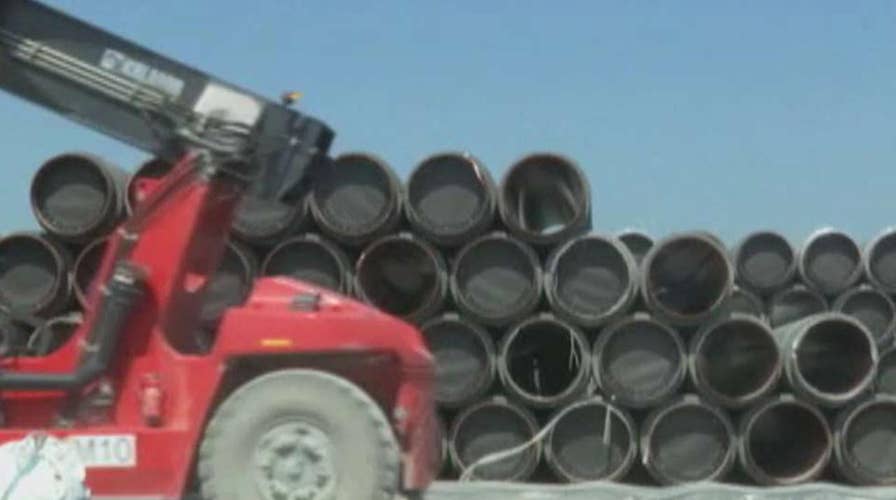Critics fear tariffs will push Europe toward Russia
European Commission president says that while Europe will never forget Russia's invasion of Ukraine and seizure of Crimea, it must cooperate with Russia where it can; Rich Edson reports from the State Department.
French President Emmanuel Macron said he wants to strengthen his country’s economic relationship with Russia.
"We have to give a clear support to the Franco-Russia strategic project and renew our cooperation in support of the diversification of the Russian economy, by developing it in new sectors, which will be the engines for tomorrow's economic growth," he said last week in St. Petersburg.
President Trump’s critics charge his tariffs on European steel and aluminum needlessly antagonize valuable allies. The United States and Europe also disagree on climate change policy, the Iran nuclear deal and defense spending.
"Whenever I’m thinking about Trump, I’m lost," said Jean-Claude Juncker, president of the European Commission.
Diplomats and analysts have complained about the deterioration of the U.S. alliance with Europe, warned of a diminished counterweight to Russia and said tension with the U.S. may provide cover for European firms to increase their trade with the Kremlin.
"We're seeing, I think France especially, but also Germany trying to play both sides, trying to play the United States and Russia at the same time," said Alina Polyakova of the Brookings Institution. "That realization that Russia is not a reliable economic partner, that it is a security threat to Europe, much more than to the United States, has not quite sunk in, unfortunately."
Russia mostly sells Europe natural resources and energy. Work is beginning on a massive, controversial gas pipeline between Russia and Germany. Nord Stream 2 would double Russia’s gas export capacity across the Baltic Sea.
The United States’ ambassador to Germany told Fox News that the administration has pushed European firms and governments to pass on business with Russia.
"The strategy for the United States, here in Germany and throughout Europe, is really to remind European businesses just what they're dealing (with) when they deal with Russia," said Ambassador Richard Grenell.
He pointed to European Union figures showing Russian trade with the EU is down since Russia invaded Ukraine and seized Crimea in 2014.
"The Russian offense and activities speak for themselves," said Grenell. "Many businesses throughout Europe are very uncomfortable with that."





